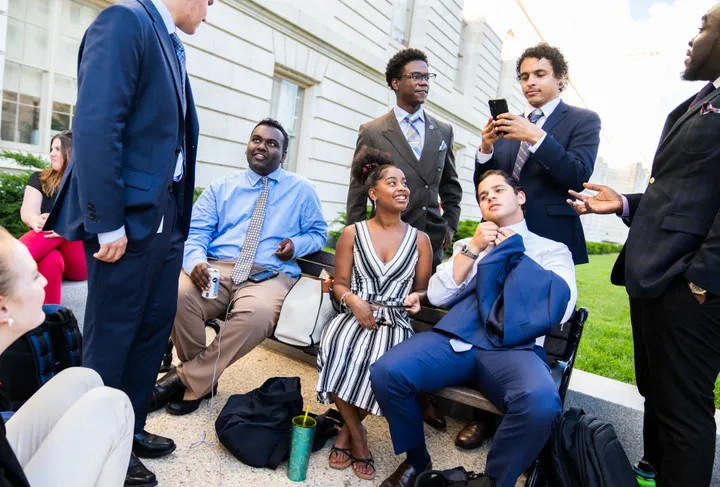Survey Finds Congress’s Talent Pipeline Flush With Wealthy Students From Elite Schools
Share
Explore Our Galleries
Breaking News!
Today's news and culture by Black and other reporters in the Black and mainstream media.
Ways to Support ABHM?
By Jonathan Nicholson, Huff Post
Almost half of this summer’s Capitol Hill interns surveyed by a good government group are attending private colleges or universities.

The newest crop of fresh-faced, eager interns has arrived on Capitol Hill for the summer, and they’re largely from rich households and selective schools.
In a new survey of 487 Hill interns, almost half, 46.7%, are attending a private college or university, which is about twice the rate seen in the overall student population. And 23.4% grew up in a household with an annual income of $200,000 or more.
“If you care about a functioning Congress, you should care about who serves as congressional interns,” said Anne Meeker, the director of strategic initiatives at the PopVox Foundation, a good government group.
“Today’s interns are tomorrow’s staffers. Policy gets shaped by who is in the room, including both [congressional] members and staff; and almost universally, the path to becoming a staff member starts with an internship,” Meeker said.
For perspective, annual tuition at public colleges averaged about $9,600 in the 2021-2022 academic year, while at private schools it was about $33,200, according to EducationData.org.
And median household income in 2020 — the number in the exact middle of all incomes — was $67,251, according to the U.S. Census Bureau…
The PopVox survey found that 45.9% of interns responding were white, down slightly from 50% reported in the spring survey. Nineteen percent were Black, 9.9% Asian or Asian American, and 7.1% Hispanic or Latino.
Those figures actually reflected more diversity than did the Pay Our Interns study, which found that 76% of all interns from April to September 2019 were white while only 6.7% were Black, 7.9% Latino and 7.9% Asian/Pacific Islander.
Read the rest of the survey findings.
Representation is even more lacking for Black women. This is why seeing Black people in political roles is so important.
Fortunately, our breaking news page includes examples of representation.









Comments Are Welcome
Note: We moderate submissions in order to create a space for meaningful dialogue, a space where museum visitors – adults and youth –– can exchange informed, thoughtful, and relevant comments that add value to our exhibits.
Racial slurs, personal attacks, obscenity, profanity, and SHOUTING do not meet the above standard. Such comments are posted in the exhibit Hateful Speech. Commercial promotions, impersonations, and incoherent comments likewise fail to meet our goals, so will not be posted. Submissions longer than 120 words will be shortened.
See our full Comments Policy here.